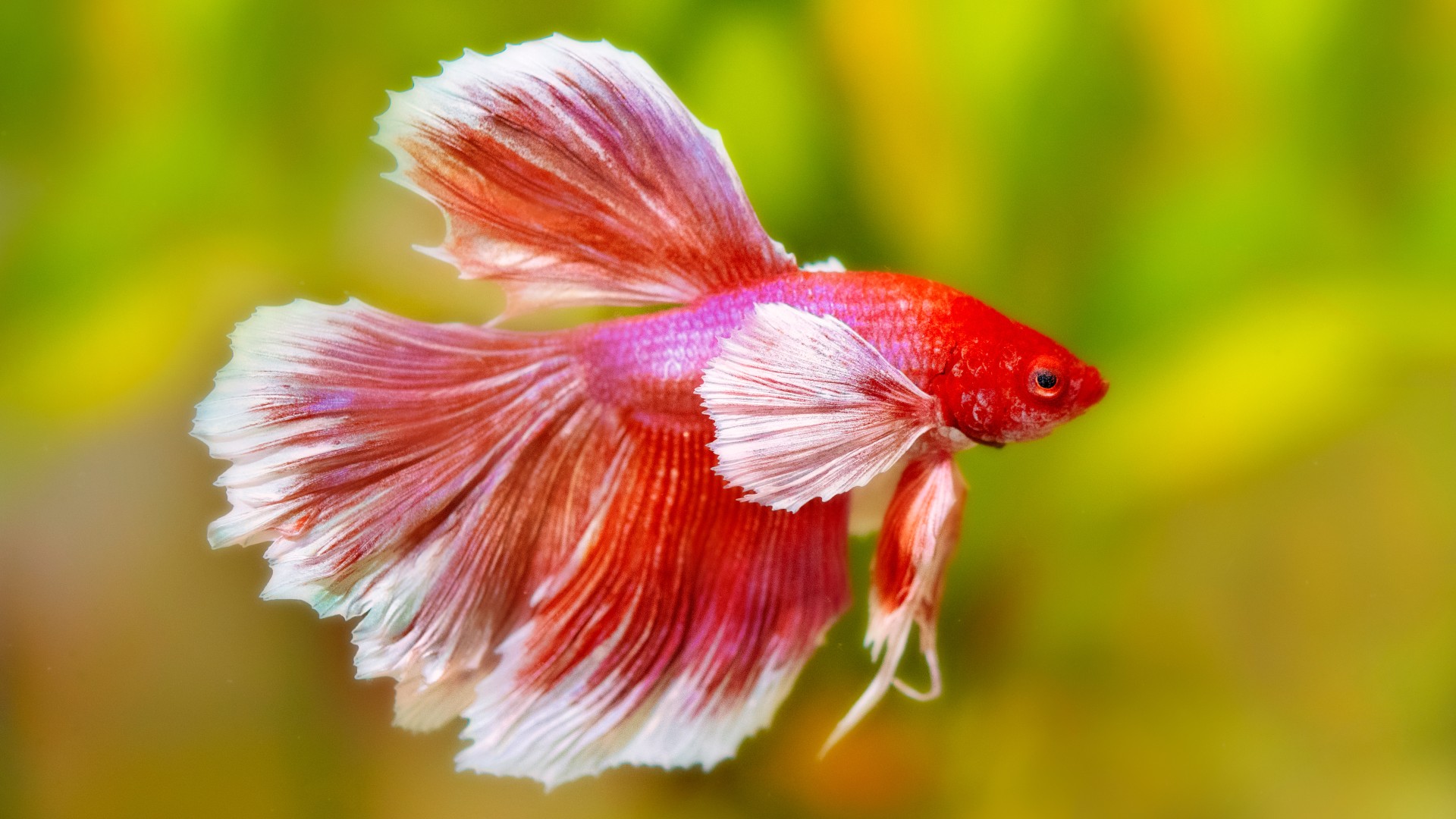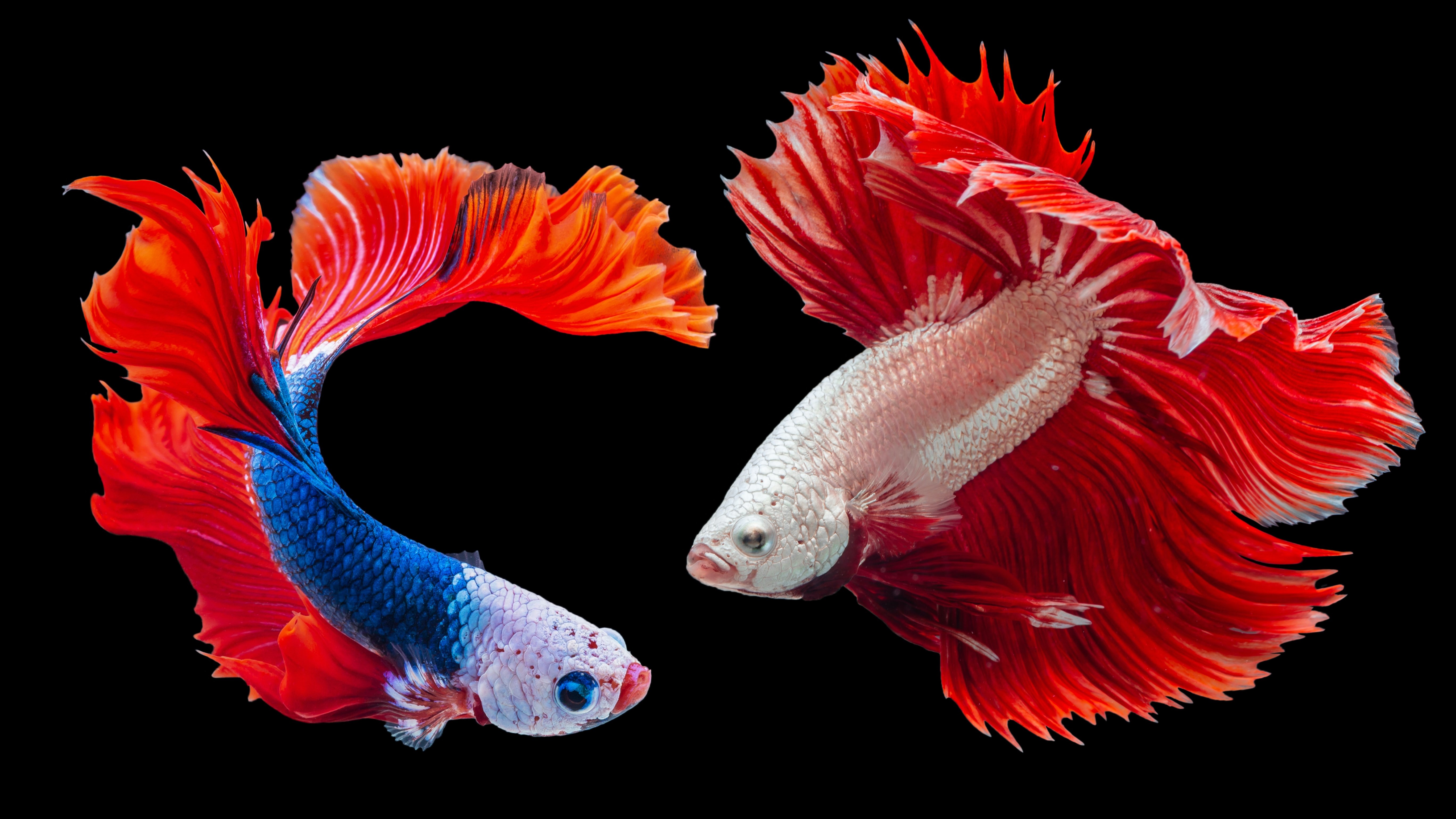How to care for a betta fish
Simple tips for how to care for a betta fish so that they can stay looking and feeling their vibrant best

Wondering how to care for a betta fish? You’re in the right place.The betta fish is one of the most popular fish breeds, loved for their bright fins and exuberant displays. By placing them in the best fish tank, they can live a happy, healthy and long life that will bring you lots of joy.
That said, these pretty tropical fish take a little bit more care than something like an ordinary goldfish to really thrive. They need the right type of food, the right type of water and a variety of things in their tanks.
As with most fish, their lifespan really depends on their environment and how they are treated.
We’ll find out more about these creatures as we go through this piece, including how easy they are to take care of, what they need in their tank and how long they generally live for. Let’s dive in!
Is a betta fish easy to take care of?
Although a betta fish requires a little more work than some fish, as long as you do a good job of educating yourself beforehand, and get some advice from experts, then there’s no reason why looking after a betta fish can’t be a straightforward task.
It’s recommended that you invest in one of the best tropical fish tanks - ensuring you pick a good size tank, with the minimum recommended size being 2.5 gallons, but even better if you can pick up a 5 gallon or larger tank. Although a more expensive initial outlay, larger tanks are generally easier to maintain in the correct way for the betta fish - such as less cleaning, better nitrogen cycling and temperature.
You may have seen betta fish being kept in extremely small bowls and even other containers such as vases and the like. While it’s true that a betta fish can technically live in tiny spaces (so can you), they’ll never prosper or thrive inside one. See the best small fish tanks if you don’t have too much space - just don’t be tempted to go too small.
Get the best advice, tips and top tech for your beloved Pets
Male betta fish need to be kept alone (though they can live with other species), as two or more are likely to fight with each other. That could end in serious injury or even death so is obviously best avoided. Females can live together in groups - but you must ensure you have enough space in the tank for them all to have plenty of space.
Betta fish: food
Betta fish need food which is specifically tailored towards them, because they are carnivorous (meat-eating). In the wild, betta fish would be drawn towards insects and larvae, so giving them something which comes close to that in a domestic environment is a good idea.
You can buy food which has been developed for betta fish. Don’t be tempted to feed them standard fish food, or even tropical fish food - they need a protein rich diet which isn’t generally supplied in typical fish food.
Treats, such as freeze-dried bloodworms can also be fed to your betta fish - it’s worth seeking advice from a breeder or betta fish specialist to ensure that they are getting a balanced diet.
Betta fish: water

As tropical fish, betta fish need warm water to thrive. The tank should be kept at a temperature ranging from 76 to 81 degrees (24-27 degrees celcius). As most domestic homes are not that warm, you’ll need to make sure you also invest in a water heater.
It’s also important to ensure that the temperature is consistently monitored with a tank thermometer - for example in the summer months, you might not need to heat it as much.
A water filter is an important purchase too. With this, you can make sure the water is free from uneaten food, urine and faeces, which can build up over time and become toxic to the betta fish. Look for filters which offer a slow speed, as a gentle environment is better suited to this type of fish.
Another thing to remember is to make sure that the tank isn’t filled too full. This will ensure that the betta fish can access the surface for oxygen - something they can do along with getting it from the water. Make sure you have a lid on the tank however, as betta fish have been known to jump out of a tank.
What do betta fish need in their tanks?
As well as a water filter, there are other things that will help your betta fish to live a contented and healthy life.
To recreate their natural habitat, you should consider some of the best fish tank accessories. This could include underwater plants, decorations, rocks, sticks and other places to help them hide and feel secure, especially when sleeping.
Direct sunlight shining on to the tank should be avoided - as it can raise the temperature too high - but a good lighting kit can help provide the betta fish with the light it needs during the day, making sure you turn it off at night when they need dark conditions.
How long does a betta fish live?
This very much depends on the conditions that it is kept in - and it’s very similar to how long do goldfish live. On average, it’s said that a betta fish kept in captivity only lives to be around 3-4 years.
However, there’s no reason why a betta fish can’t live much longer if kept in the best possible way, with the right conditions. Speak - at length - with your breeder, other owners and educate yourself on how to care for one before you invest.
It’s likely that if you keep a betta fish in a very small container (such as a bowl) that they will only live for around a year or so. Just like all pets, betta fish deserve to be owned by those who are dedicated to giving them a good life - so be sure you’re making the right choice before investing.
Amy Davies is a freelance writer and photographer with over 15 years experience. She has a degree in journalism from Cardiff University and has written about a huge variety of topics over the years. These days she mostly specialises in technology and pets, writing across a number of different titles including TechRadar, Stuff, Expert Reviews, T3, Digital Camera World, and of course PetsRadar. She lives in Cardiff with her dog, Lola, a rescue miniature dachshund.

